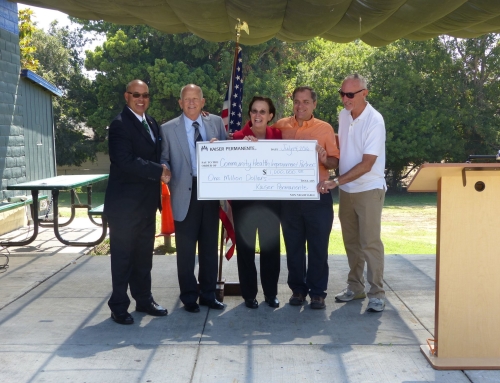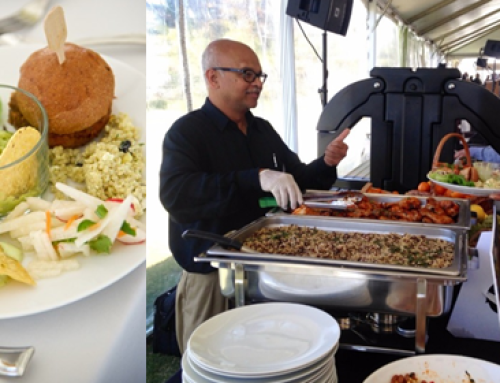Food insecurity is among the most pressing issues related to health and wellness in our communities. More than 800 million people worldwide live every day with hunger or food insecurity – being without reliable access to a sufficient quantity of affordable, nutritious food. In the South Bay, 36.5 percent of households (more than 145,000 residents) have incomes less than 200 percent of the Federal Poverty Level. More than half of adults with incomes under that level are unable to afford enough food. Hunger affects everyone from students to seniors, from low-income to middle-class communities. Food insecurity is prevalent in South Bay communities.
“Hunger in San Diego County is a hidden crisis, affecting nearly 1 in 6 people, and it will take a broad, coordinated effort to solve it,” said Anahid Brakke, San Diego Hunger Coalition Executive Director. “By working together and using data to guide our efforts, we can end hunger in San Diego County.”
On the other hand, food waste is a serious global issue that directly affects food insecurity. About one-third of all food produced worldwide becomes lost in food production and consumption systems each year, an economic loss of around $1 trillion. In the U.S., nearly 40 percent of the food supply is wasted each year, with organic waste the second-highest component of landfills, the largest source of methane emissions.
Over the last several months, the City of Chula Vista, together with several community partners such as Community Health Improvement Partners’ REACH Chula Vista project, San Diego Hunger Coalition, San Diego Food Bank, Feeding San Diego, County of San Diego – Live Well South Region, and Sweetwater Union High School District- Chula Vista High School, organized a series of forums to bring together food insecurity and hunger experts as well as other community organizations and community members to address these critical issues.
“It is important we bring together practitioners and organizations to identify how we can collaborate to address food insecurity, hunger and access to healthy food in Chula Vista and the South Bay,” said Chula Vista Mayor Mary Casillas Salas.
Throughout these forums, attendees learned about: the impacts of nutrition on our community’s health, local and state initiatives seeking to slow and stop food insecurity in our communities,: the impacts of food waste on our community’s health, food waste reduction strategies, such as smart shopping: eating and saving food, and lessons learned and best practices to reverse food insecurity in the South Bay.
“A key focus of these forums is to identify how to get more healthy food distributed through the various community channels,” said Stan Miller, Senior Director, Community Health Improvement Partners. “Sharing a few great examples of programs connecting good nutrition and health with hunger relief work locally will provide opportunities to help achieve that.”
The third forum focused on how to collectively sustain our food rescue, waste, and distribution systems. Breakout sessions explored building and maintaining partnerships among food-related organizations; hunger relief through education and sustainability; maximizing food collection and distribution; ensuring nutritious food through donations; and poverty-supporting services.
“These kinds of forums are important for sharing all the opportunities we have to make food recovery a common practice among businesses, whether they are school cafeterias, restaurants, farms or hospitals,” said Patti Larson, Food Finders Executive Director. “Hunger should be a solvable crisis in our local communities, and eliminating food waste is just one part of the equation, but an important part.”
A very special “Thank You” to all who participated as speakers, panelists and/or moderators:
- Hon. Mary Casillas Salas, Mayor of Chula Vista
- Hon. Shirley Weber, District 79, California State Assembly
- Hon. Lorena Gonzalez, District 80, California State Assembly
- Amanda Schultz Brochu, San Diego Hunger Coalition
- Stan Miller, Community Health Improvement Partners, Senior Director REACH Chula Vista
- Jillian Barber, Sharp HealthCare Community Benefits and Health Improvement Program Manager
- Mary Rose Peralta, Principal, Chula Vista High School
- Maria Galleher, Agriculture Pathway Program, Chula Vista High School
- Joseph Espinoza, Chula Vista High School, Student
- Rosie Peralta, Chula Vista High School, Student
- Dave DiDonato, Recycling Specialist, City of Chula Vista
- Eric Span, Sweetwater Union High School District, Director of Nutrition Services
- Naomi Billups, Public Health Nutrition Manager, County of San Diego Health and Human Services
- Dean E. Sidelinger, MD, MSEd, Child Health Medical Officer, County of San Diego HHSA
- Anahid Brakke, San Diego Hunger Coalition, Executive Director
- Patti Larson, Food Finders, Executive Director


